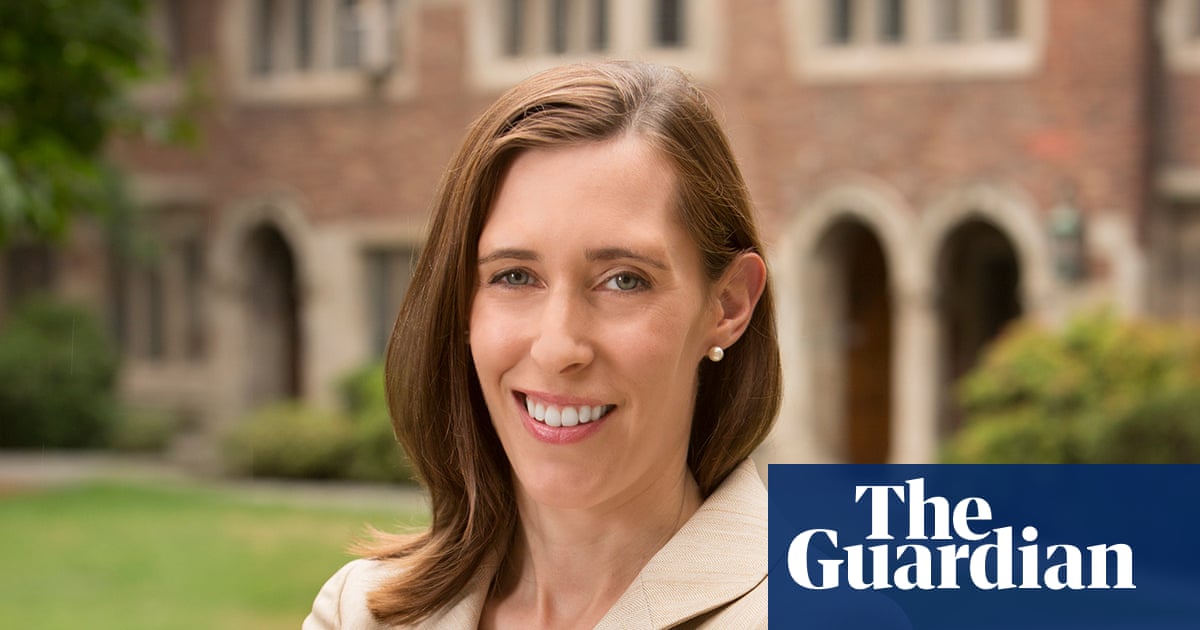Bridget Phillipson has become the most high-profile candidate yet to throw her hat in the ring for the Labour deputy leadership contest, immediately becoming the frontrunner, as she is most likely to meet the threshold for MP nominations.
Veteran Labour MP Emily Thornberry, former Commons leader Lucy Powell, and the leftwing MP for Clapham and Brixton Hill, Bell Ribeiro-Addy, have all joined the education secretary in the race. Senior Labour figures urged MPs to select a woman from outside London to become Keir Starmer’s deputy.
While Labour party members, many of whom are to the left of Starmer’s leadership, could be suspicious of Phillipson’s role as a serving cabinet minister, she will be seen by backbenchers as No 10’s de facto candidate.
Islington South MP Thornberry, the chair of the powerful foreign affairs committee, also declared on Tuesday, saying on social media: “We fought hard for a Labour government. But we’ve made mistakes and must listen.
“Welfare. Gaza. Wealth tax. Changes to come on Send. I will be a voice for the membership, unions, PLP and our constituents – not just nod along.”
Powell, the ousted Commons leader, confirmed she was joining the race, running on a soft-left ticket, pledging to hold Starmer to account on behalf of Labour members.
The Manchester Central MP said she was proud to have served in Keir Starmer’s government, adding that her politics were rooted in “an understanding of people’s everyday hopes and fears”.
“As our deputy leader, I would ensure these are at the heart of what we do and how we operate, bringing together all parts of the party and uniting our broad voter coalition,” she said.
Allies of Phillipson believe she has “a good story to tell” from her time running the Department for Education – expanding free school meal provision and childcare support for new parents, as well as fighting to do more to tackle child poverty.
As a working-class northerner who made it to the top of government, she meets the requirement of many MPs to have a woman from outside London leading the party alongside Starmer, while she has a reputation as an effective local campaigner unafraid to take on Reform UK.
However, while party insiders suggested Phillipson may be prepared to acknowledge the government had made mistakes on issues including welfare and Gaza, as a serving cabinet minister “she won’t come out swinging” against Starmer, they said.
With a series of senior female Labour MPs dropping out of contention to replace Angela Rayner – including Shabana Mahmood, Lisa Nandy and Louise Haigh – a compressed timetable for nominations and worries about a potentially toxic atmosphere have narrowed the field.
However, in a fast-moving process where hopefuls have until Thursday afternoon to secure nominations from at least 80 Labour MPs, they could struggle to reach the ballot if the field ends up wide, dividing the MP vote.
Alison McGovern, a local government minister, is among other Labour MPs who are considering running.
Ribeiro-Addy, a south London MP who is close to Diane Abbott, has emerged as the candidate of the left of the party. She told the BBC on Tuesday that Labour needed a discussion on “what’s gone wrong” since it came to office.
“We do have to accept that we have to have a discussion about what members don’t like and what voters don’t like, and what’s gone wrong,” she said.
“It’s very important to note that a load of Labour members and voters are unhappy about the handling of the situation in Gaza, the winter fuel allowance, the welfare cuts.
“All of these things are things that we should be discussing and the idea that we should not have a debate because it may seem critical of the party, I think, is wrong.”
Ribeiro-Addy also suggested the truncated timetable set out for Labour’s deputy leadership was “unfair”, giving MPs just three days to decide who they would put forward for a vote among the party membership. A senior MP on the soft left of the party described the contest as a “stitch-up”.
Senior Labour figures, including the health secretary, Wes Streeting; the Manchester mayor, Andy Burnham; and Harriet Harman, all suggested the party should chose a female deputy from outside the capital, as Starmer represents a north London seat.
Tracy Brabin, the mayor of West Yorkshire, told the Politics Inside Out podcast that the deputy leader should not have to be an MP. She said: “I do think it should be a woman, and I do think it should be a northerner because where else is our voice heard? We’ve got to get our membership, which is all across the country. Have that diversity of thinking.”
In a statement announcing her candidacy, Phillipson said: “I am a proud working-class woman from the north-east. I have come from a single-parent family on a tough council street, all the way to the cabinet, determined to deliver better life chances for young people growing up in our country.
“I’ve taken on powerful vested interests in the education sector – and even as they threw everything at me, I have never taken a backwards step. I will bring that same determination to every battle ahead of us.
“Because make no mistake: we are in a fight. We all know the dangers Reform poses our country. But not only am I ready for it, I’ve proven we can do it. I’ve shown we can beat Farage in the north-east, while staying true to the Labour party’s values of equality, fairness and social justice.”

 2 months ago
45
2 months ago
45

















































